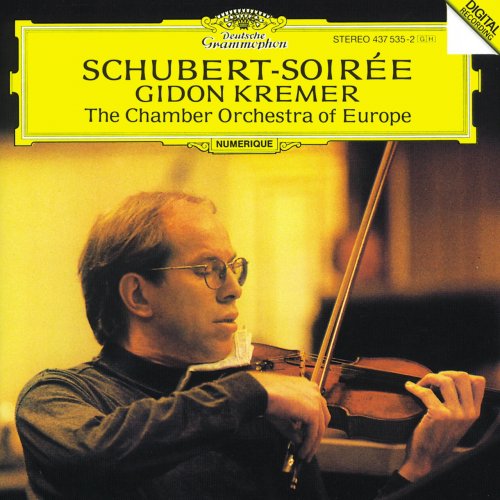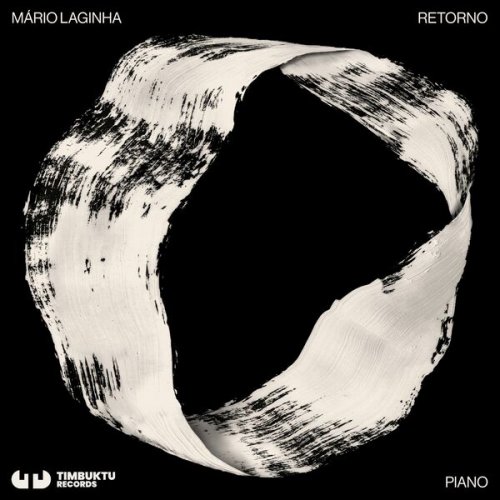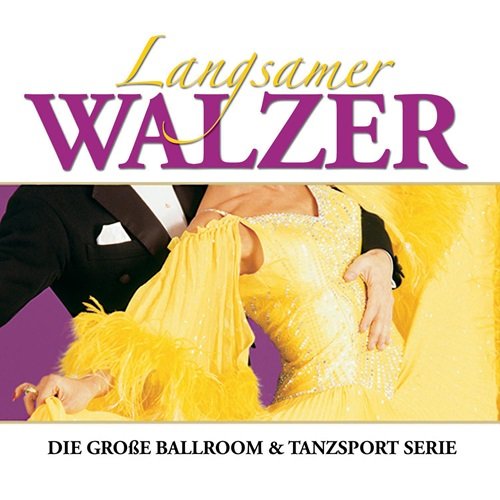Gidon Kremer - Schubert Soirée (1993)

Artist: Gidon Kremer
Title: Schubert Soirée
Year Of Release: 1993
Label: Deutsche Grammophon
Genre: Classical
Quality: FLAC (tracks)
Total Time: 01:00:58
Total Size: 301 mb
WebSite: Album Preview
Tracklist: Title: Schubert Soirée
Year Of Release: 1993
Label: Deutsche Grammophon
Genre: Classical
Quality: FLAC (tracks)
Total Time: 01:00:58
Total Size: 301 mb
WebSite: Album Preview
1. Schubert: Polonaise In B Flat, D.580
2. Schubert: 5 German Dances, D.89 (D.90) - Arranged For 7 Trios And 1 Coda For String Quartett - 1. Deutscher Tanz - Trio I - Trio II In C Major
3. Schubert: 5 German Dances, D.89 (D.90) - Arranged For 7 Trios And 1 Coda For String Quartett - 2. Deutscher Tanz - Trio I - Trio II In G Major
4. Schubert: 5 German Dances, D.89 (D.90) - Arranged For 7 Trios And 1 Coda For String Quartett - 3. Deutscher Tanz - Trio In D Major
5. Schubert: 5 German Dances, D.89 (D.90) - Arranged For 7 Trios And 1 Coda For String Quartett - 4. Deutscher Tanz In F Major
6. Schubert: 5 German Dances, D.89 (D.90) - Arranged For 7 Trios And 1 Coda For String Quartett - 5. Deutscher Tanz - Trio I - Trio II - Coda
7. Schubert: Rondo For Violin And Orchestra In A, D.438 - Adagio- Allegro giusto
8. Schubert: Five Minuets And Trios For String Quartet, D.89 - Arranged For String Orchestra And 6 Trios - 1. In C Minor
9. Schubert: Five Minuets And Trios For String Quartet, D.89 - Arranged For String Orchestra And 6 Trios - 2. In F Major
10. Schubert: Five Minuets And Trios For String Quartet, D.89 - Arranged For String Orchestra And 6 Trios - 3. In D Minor
11. Schubert: Five Minuets And Trios For String Quartet, D.89 - Arranged For String Orchestra And 6 Trios - 4. In G Major
12. Schubert: Five Minuets And Trios For String Quartet, D.89 - Arranged For String Orchestra And 6 Trios - 5. In C Major
13. Schubert: Konzertstück (For Violin And Orchestra) In D Major, D.345 - Adagio - Allegro
Performers:
Gidon Kremer
Chamber Orchestra of Europe
The two sets of dances are charming products of Schubert's mid-teenage years and provide Gidon Kremer with much food for musical thought. Whereas a lesser artist might settle for charm and no more, Kremer locates those occasional corners where bodeful intimations lie dormant: witness the darkening cadences at the close of the Sixth German Dance or the third (D minor) Minuet's pensive outer sections. His solo playing has a fine-spun, slightly husky quality, spot-on the centre of the note and with constantly shifting nuances. It's a style that reminded me of Kremer's great teacher, David Oistrakh, and lends Schubert's top line a poignant, speaking quality. The Trios of the Dances are played by a hand-picked quartet (led by Kremer), the outer sections by the full group.
The three concertante works are rather later and more obviously formal, although the jaunty Polonaise which opens the programme shares the carefree atmosphere that most of the dances inhabit. Again, Kremer inflects the musical line and inspires agile, lilting accompaniments from his colleagues; he floats into the A major Rondo (track 7, at 108") with such disarming gracefulness that I immediately leapt to my CD drawer for a replay. Throughout the disc there are significant echoes of past masters, particularly in the dances quoted above: Mozart in the D minor Minuet, and Beethoven in the C major German Dance, which bears a striking resemblance to the Scherzo from his C minor (1801-2) Violin Sonata, op. 30 No. 2. The recordings are excellent, with a notably strong bass line. -- Robert Cowan
The three concertante works are rather later and more obviously formal, although the jaunty Polonaise which opens the programme shares the carefree atmosphere that most of the dances inhabit. Again, Kremer inflects the musical line and inspires agile, lilting accompaniments from his colleagues; he floats into the A major Rondo (track 7, at 108") with such disarming gracefulness that I immediately leapt to my CD drawer for a replay. Throughout the disc there are significant echoes of past masters, particularly in the dances quoted above: Mozart in the D minor Minuet, and Beethoven in the C major German Dance, which bears a striking resemblance to the Scherzo from his C minor (1801-2) Violin Sonata, op. 30 No. 2. The recordings are excellent, with a notably strong bass line. -- Robert Cowan





![Keyvan Chemirani - Tales of Nar (2026) [Hi-Res] Keyvan Chemirani - Tales of Nar (2026) [Hi-Res]](https://img.israbox.com/img/2026-02/05/2f0crjk19rw3dp7xd5h38ofxr.jpg)


